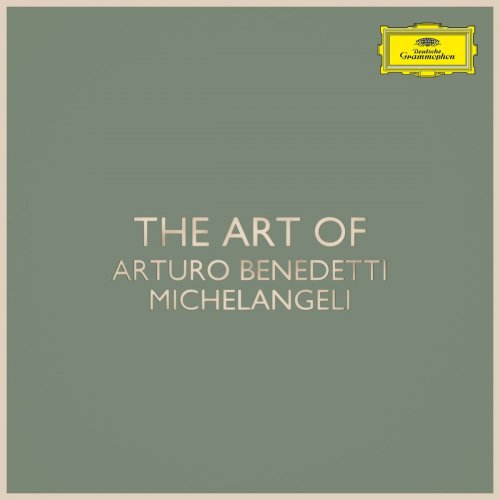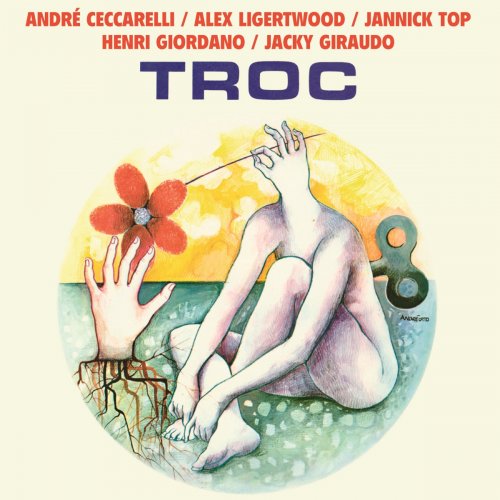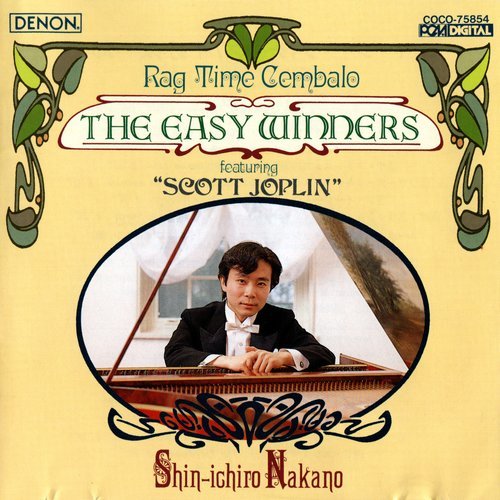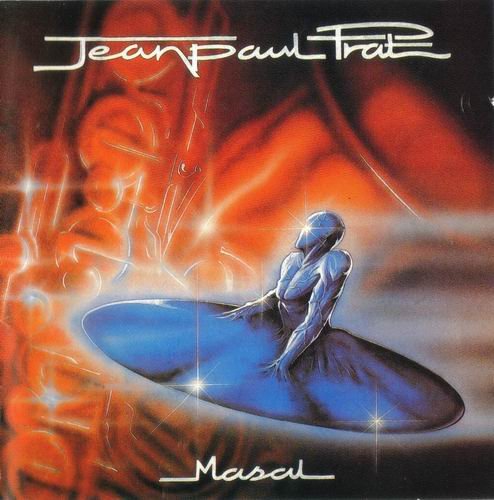Arturo Benedetti Michelangeli - The Art of Arturo Benedetti Michelangeli (2020)

Artist: Arturo Benedetti Michelangeli
Title: The Art of Arturo Benedetti Michelangeli
Year Of Release: 2020
Label: UMG Recordings, Inc.
Genre: Classical
Quality: FLAC (tracks)
Total Time: 9:43:52
Total Size: 2.18 GB
WebSite: Album Preview
Tracklist:Title: The Art of Arturo Benedetti Michelangeli
Year Of Release: 2020
Label: UMG Recordings, Inc.
Genre: Classical
Quality: FLAC (tracks)
Total Time: 9:43:52
Total Size: 2.18 GB
WebSite: Album Preview
01. Carnaval, Op. 9 : 1. Préambule
02. Carnaval, Op.9 : 2. Pierrot
03. Carnaval, Op.9 : 3. Arlequin
04. Carnaval, Op.9 : 4. Valse noble
05. Carnaval, Op.9 : 5. Eusebius
06. Carnaval, Op.9 : 6. Florestan
07. Carnaval, Op.9 : 7. Coquette
08. Carnaval, Op.9 : 8. Réplique - Sphinxes
09. Carnaval, Op.9 : 9. Papillons
10. Carnaval, Op.9 : 10. A.S.C.H.-S.C.H.A. (Lettres dansantes)
11. Carnaval, Op. 9 : 11. Chiarina
12. Carnaval, Op. 9 : 12. Chopin
13. Carnaval, Op.9 : 13. Estrella
14. Carnaval, Op. 9 : 14. Reconnaissance
15. Carnaval, Op.9 : 15. Pantalon et Colombine
16. Carnaval, Op.9 : 16a. Valse Allemande
17. Carnaval, Op.9 : 16b. Intermezzo: Paganini
18. Carnaval, Op.9 : 17. Aveu
19. Carnaval, Op.9 : 18. Promenade
20. Carnaval, Op.9 : 19. Pause
21. Carnaval, Op.9 : 20. Marche des "Davidsbündler" contre les Philistins
22. Mazurka No. 45 in G Minor, Op. 67 No. 2 : Cantabile
23. Mazurka No.34 In C Op. 56 No. 2 : Vivace (I)
24. Mazurka No. 47 in A Minor, Op. 67 No. 4 : Moderato animato
25. Mazurka No. 49 in A Minor, Op. 68 No. 2 : Lento
26. Mazurka No. 48 in C Major, Op. 68 No. 1 : Vivace (II)
27. Mazurka No.22 In G Sharp Minor Op. 33 No. 1 : Mesto (I)
28. Mazurka No. 20 in D-Flat Major, Op. 30 No. 3 : Allegro non troppo
29. Mazurka No. 19 in B Minor, Op. 30 No. 2 : Allegretto
30. Mazurka No. 25 in B Minor, Op. 33 No. 4 : Mesto (II)
31. Mazurka No.51 In F Minor Op. 68 No. 4 : Andantino
32. Children's Corner, L. 113 : 1. Doctor Gradus ad Parnassum
33. Children's Corner, L. 113 : 2. Jimbo's Lullaby
34. Children's Corner, L. 113 : 3. Serenade for the Doll
35. Children's Corner, L. 113 : 4. The Snow Is Dancing
36. Children's Corner, L. 113 : 5. The Little Shepherd
37. Children's Corner, L. 113 : 6. Golliwogg's Cakewalk
38. Préludes / Book 1, L. 117 : 1. Danseuses de Delphes
39. Préludes / Book 1, L. 117 : 2. Voiles
40. Préludes / Book 1, L. 117 : 3. Le vent dans la plaine
41. Préludes / Book 1, L. 117 : 4. Les sons et les parfums tournent dans l'air du soir
42. Préludes / Book 1, L. 117 : 5. Les collines d'Anacapri
43. Préludes / Book 1, L. 117 : 6. Des pas sur la neige
44. Préludes / Book 1, L. 117 : 7. Ce qu'a vu le vent d'ouest
45. Préludes / Book 1, L. 117 : 8. La fille aux cheveux de lin
46. Préludes / Book 1, L. 117 : 9. La sérénade interrompue
47. Préludes / Book 1, L. 117 : 10. La cathédrale engloutie
48. Préludes / Book 1, L. 117 : 11. La danse de Puck
49. Préludes / Book 1, L. 117 : 12. Minstrels
50. Préludes - Book 2, L.123 : 1. Brouillards
51. Préludes / Book 2, L. 123 : 2. Feuilles mortes
52. Préludes / Book 2, L. 123 : 3. La puerta del vino
53. Préludes - Book 2, L.123 : 4. Les fées sont d'exquises danseuses
54. Préludes / Book 2, L. 123 : 5. Bruyères
55. Préludes / Book 2, L. 123 : 6. General Lavine - eccentric
56. Préludes - Book 2, L.123 : 7. La terrasse des audiences du clair de lune
57. Préludes - Book 2, L.123 : 8. Ondine
58. Préludes - Book 2, L.123 : 9. Hommage à S. Pickwick, Esq., P.P.M.P.C.
59. Préludes - Book 2, L.123 : 10. Canope
60. Préludes - Book 2, L.123 : 11. Les tierces alternées
61. Préludes / Book 2, L. 123 : 12. Feux d'artifice
62. Images - Book 1, L. 110 : 1. Reflets dans l'eau
63. Images - Book 1, L. 110 : 2. Hommage à Rameau
64. Images - Book 1, L. 110 : 3. Mouvement
65. Images - Book 2, L. 111 : 1. Cloches à travers les feuilles
66. Images - Book 2, L. 111 : 2. Et la lune descend sur le temple qui fût
67. Images - Book 2, L. 111 : 3. Poissons d'or
68. Piano Concerto No. 13 in C Major, K. 415 : 1. Allegro (I) (Live)
69. Piano Concerto No. 13 In C Major, K.415 : 2. Andante (I) (Live)
70. Piano Concerto No. 13 In C Major, K.415 : 3. Rondeau (Allegro) (Live)
71. Piano Concerto No. 15 In B Flat Major, K.450 : 1. Allegro (II) (Live)
72. Piano Concerto No. 15 in B-Flat Major, K. 450 - Cadenzas: W.A. Mozart : 2. Andante (II) (Live)
73. Piano Concerto No.15 In B Flat, K.450 : 3. Allegro (III) (Live)
74. Piano Concerto No. 20 in D Minor, K. 466 - Cadenzas: Ludwig van Beethoven : 1. Allegro (Live)
75. Piano Concerto No.20 In D Minor, K.466 : 2. Romance (Live)
76. Piano Concerto No.20 In D Minor, K.466 : 3. Rondo (Allegro assai) (Live)
77. Piano Concerto No.25 In C, K.503 : 1. Allegro Maestoso (Live)
78. Piano Concerto No.25 In C, K.503 : 2. Andante (Live)
79. Piano Concerto No.25 In C, K.503 : 3. Allegretto (Live)
80. Piano Concerto No. 5 in E-Flat Major, Op. 73 "Emperor" : 1. Allegro (I) (Live)
81. Piano Concerto No. 5 in E-Flat Major, Op. 73 "Emperor" : 2. Adagio un poco mosso (Live)
82. Piano Concerto No. 5 in E-Flat Major, Op. 73 "Emperor" : 3. Rondo (Allegro) (Live)
83. Faschingsschwank aus Wien, Op. 26 : 1. Allegro (Vivace assai)
84. Faschingsschwank aus Wien, Op.26 : 2. Romanze (Piuttosto lento)
85. Faschingsschwank aus Wien, Op.26 : 3. Scherzino
86. Faschingsschwank aus Wien, Op.26 : 4. Intermezzo (Colla più grande energia)
87. Faschingsschwank aus Wien, Op.26 : 5. Finale (Il più vivace possibile)
88. Prélude No.25 In C Sharp Minor, Op. 45 : Sostenuto
89. Scherzo No. 2 in B-Flat Minor, Op. 31 : Presto - Sostenuto
90. 4 Ballades, Op. 10 : No. 1 in D Minor
91. 4 Ballades, Op.10 : No.2 In D
92. 4 Ballades, Op. 10 : No. 3 in B Minor
93. 4 Ballades, Op.10 : No.4 In B
94. Piano Sonata No.4 In A Minor, D.537 : 1. Allegro ma non troppo
95. Piano Sonata No. 4 in A Minor, D. 537 : 2. Allegretto quasi andantino
96. Piano Sonata No.4 In A Minor, D.537 : 3. Allegro vivace
97. Piano Sonata No. 4 in E Flat Major, Op. 7 : 1. Allegro molto e con brio
98. Piano Sonata No. 4 in E Flat Major, Op. 7 : 2. Largo con gran espressione
99. Piano Sonata No. 4 in E-Flat Major, Op. 7 : 3. Allegro – Trio
100. Piano Sonata No. 4 in E Flat Major, Op. 7 : 4. Rondo (Poco allegretto e grazioso)
101. Piano Concerto No. 1 in C Major, Op. 15 : 1. Allegro con brio (Cadenza by Ludwig van Beethoven) (Live)
102. Piano Concerto No. 1 in C Major, Op. 15 : 2. Largo (I) (Live)
103. Piano Concerto No. 1 in C Major, Op. 15 : 3. Rondo. Allegro (Cadenza by Ludwig van Beethoven) (Live)
104. Piano Concerto No. 3 in C Minor, Op. 37 : 1. Allegro con brio (Live)
105. Piano Concerto No. 3 in C Minor, Op. 37 : 2. Largo (II) (Live)
106. Piano Concerto No. 3 in C Minor, Op. 37 : 3. Rondo (Allegro) (Live)
107. Piano Concerto In A Minor, Op.54 : 1. Allegro affettuoso
108. Piano Concerto In A Minor, Op.54 : 2. Intermezzo (Andantino grazioso)
109. Piano Concerto In A Minor, Op.54 : 3. Allegro vivace
One of the most enigmatic performers of the 20th century, Arturo Benedetti Michelangeli was also one of the most compelling and, paradoxically, one of the least-heard pianists of his generation. Michelangeli was famous for having canceled nearly as many performances as he gave, and he committed little of his vast repertory to disc.
Michelangeli has born on January 5, 1920, in Orzinuovi, Italy. His father was a dedicated amateur musician who introduced young Benedetti to the art. After early studies on the violin, Michelangeli took up the piano, entering the Milan Conservatory at the age of ten. Four years later the young pianist graduated with top accolades.
In 1939 Michelangeli's concert career began in earnest after he claimed top honors at the International Piano Competition in Geneva. Of his triumphant performance at the competition, no less a luminary than the great Alfred Cortot exclaimed, "A new Liszt is born!" Service in the Italian Air Force during World War II interrupted Michelangeli's career; taking the stage again at war's end, however, he soon earned a place among the top performers of the day.
The 1950s and 1960s were a busy time for the pianist, who divided his time between a hectic concert schedule and various teaching appointments. In 1960 Michelangeli performed Beethoven's "Emperor" Concerto in Vatican City for the Pope. A triumphant 1964 appearance in Moscow reportedly had the audience in an uproar, and in 1965 Michelangeli became one of the first Western artists to concertize extensively in Asia.
In 1968 Michelangeli went into voluntary "exile" from Italy, angered at the government for impounding his pianos after a company in which he was a partner went bankrupt. Although Italy remained his official residence, he resided in Switzerland for the rest of his life.
In the 1970s and 1980s he made fewer and fewer concert appearances, owing both to consistent health troubles and his growing aversion to public display. During a performance in Bordeaux in October 1988 he suffered an aortic aneurysm onstage; nevertheless, he resumed performing the following season. He gave his last public performance in 1990 and died five years later died from the chronic medical problems that had plagued him since childhood.
Michelangeli regarded the life of a concert pianist as one of labor. His own schedule included upwards of ten hours of practice a day; he suggested to his pupils that they cease practicing only when the pain in the fingers and shoulders became too great for them to continue. Michelangeli took his role as a mentor very seriously; he held various teaching positions in Italy and throughout Europe, and included Martha Argerich and Maurizio Pollini among his pupils. A generous man, he funded each and every one of his students out of his own income, maintaining that music is an inalienable right for those who have the gift.
To many Michelangeli's playing was the ideal blend of technique and uncanny musical depth. His subtlety, revealed in such masterly recordings as Brahms' Paganini Variations, is in restraint and detachment -- calculated to temper power and fury, not to replace it. His performances of Mozart, Haydn, and Scarlatti are particularly esteemed.
Michelangeli never wholly embraced life as a concert artist. He felt that to pour such adulation on a performer was a disgrace, and that it distracted the performer from the very essence of his duty. A deeply private man, Michelangeli had a tendency to distort the truth during interviews, making it difficult for musicologists and historians to build an accurate portrait of his life; he will likely remain a fascinating, little-understood man. ~ Blair Johnston
Michelangeli has born on January 5, 1920, in Orzinuovi, Italy. His father was a dedicated amateur musician who introduced young Benedetti to the art. After early studies on the violin, Michelangeli took up the piano, entering the Milan Conservatory at the age of ten. Four years later the young pianist graduated with top accolades.
In 1939 Michelangeli's concert career began in earnest after he claimed top honors at the International Piano Competition in Geneva. Of his triumphant performance at the competition, no less a luminary than the great Alfred Cortot exclaimed, "A new Liszt is born!" Service in the Italian Air Force during World War II interrupted Michelangeli's career; taking the stage again at war's end, however, he soon earned a place among the top performers of the day.
The 1950s and 1960s were a busy time for the pianist, who divided his time between a hectic concert schedule and various teaching appointments. In 1960 Michelangeli performed Beethoven's "Emperor" Concerto in Vatican City for the Pope. A triumphant 1964 appearance in Moscow reportedly had the audience in an uproar, and in 1965 Michelangeli became one of the first Western artists to concertize extensively in Asia.
In 1968 Michelangeli went into voluntary "exile" from Italy, angered at the government for impounding his pianos after a company in which he was a partner went bankrupt. Although Italy remained his official residence, he resided in Switzerland for the rest of his life.
In the 1970s and 1980s he made fewer and fewer concert appearances, owing both to consistent health troubles and his growing aversion to public display. During a performance in Bordeaux in October 1988 he suffered an aortic aneurysm onstage; nevertheless, he resumed performing the following season. He gave his last public performance in 1990 and died five years later died from the chronic medical problems that had plagued him since childhood.
Michelangeli regarded the life of a concert pianist as one of labor. His own schedule included upwards of ten hours of practice a day; he suggested to his pupils that they cease practicing only when the pain in the fingers and shoulders became too great for them to continue. Michelangeli took his role as a mentor very seriously; he held various teaching positions in Italy and throughout Europe, and included Martha Argerich and Maurizio Pollini among his pupils. A generous man, he funded each and every one of his students out of his own income, maintaining that music is an inalienable right for those who have the gift.
To many Michelangeli's playing was the ideal blend of technique and uncanny musical depth. His subtlety, revealed in such masterly recordings as Brahms' Paganini Variations, is in restraint and detachment -- calculated to temper power and fury, not to replace it. His performances of Mozart, Haydn, and Scarlatti are particularly esteemed.
Michelangeli never wholly embraced life as a concert artist. He felt that to pour such adulation on a performer was a disgrace, and that it distracted the performer from the very essence of his duty. A deeply private man, Michelangeli had a tendency to distort the truth during interviews, making it difficult for musicologists and historians to build an accurate portrait of his life; he will likely remain a fascinating, little-understood man. ~ Blair Johnston
![Ablaye Cissoko, Kiya Tabassian, Constantinople - Estuaire (2026) [Hi-Res] Ablaye Cissoko, Kiya Tabassian, Constantinople - Estuaire (2026) [Hi-Res]](https://img.israbox.com/img/2026-02/05/bd2ycop79dvrdm4dy879uxato.jpg)
![Batsumi - The Hunters 1974-1976 (2026 Remaster) (2026) [Hi-Res] Batsumi - The Hunters 1974-1976 (2026 Remaster) (2026) [Hi-Res]](https://img.israbox.com/img/2026-02/05/9v7nd2ua6woy4uoean9znxpu1.jpg)






![FŒHN - Soleil de Minuit (2026) [Hi-Res] FŒHN - Soleil de Minuit (2026) [Hi-Res]](https://www.dibpic.com/uploads/posts/2026-02/1770357244_gm1m1pna2mo8k_600.jpg)